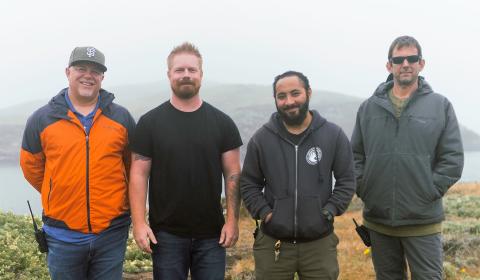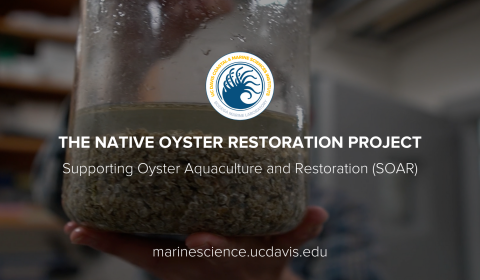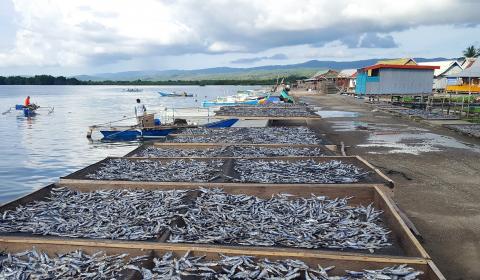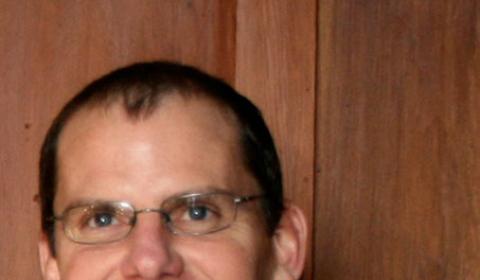Sustainable Seafood Blog Posts
All Eyes on ARG: Bodega Marine Lab’s Best-Kept Secret
What does it take to study the ocean? It’s a lot harder than you might think, considering most marine research happens in a lab instead of the ocean itself. Imagine you are starting a project at Bodega Marine Laboratory (BML) and given only two weeks with limited funding to set up your study and collect all of the data you need to answer your research question. Data collection is an enormous task, but have you ever thought about the time it takes to replicate ocean environments on land? Researchers need access to a huge supply of seawater –often under very controlled conditions– and may also need access to marine life from intertidal or coastal waters that would have to be captured and brought back to the lab.
The Native Oyster Restoration Project
The UC Davis Bodega Marine Laboratory's Aquatic Resources Group offers a glimpse into the world of oyster aquaculture. See the hatchery, where tiny Olympia oysters (Ostrea lurida) - the only oyster species native to the west coast of the US - are prepared for outplanting into the ocean.
How Do Sustainable Development Policies Impact Rural Coastal Communities?
Written by: Jessica Ramos
Marine conservation and poverty alleviation in rural coastal economies might be better achieved through stimulus programs that target alternative sectors other than fishing, according to a recent study led by Amanda Lindsay (Economics Accounting & Management, Luther College) with co-authors including Jim Sanchirico and J. Edward Taylor from the University of California, Davis.
Spotlight On: James Sanchirico
James N. Sanchirico is currently a Professor in the Department of Environmental Science and Policy. His main research interests include the economic analysis of policy design, implementation, and evaluation for marine and terrestrial species conservation, and the development of economic-ecological models for forecasting the effects of resource management policies.




